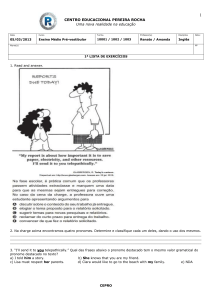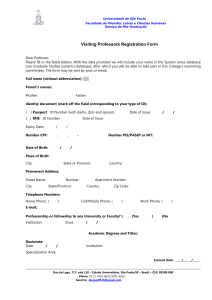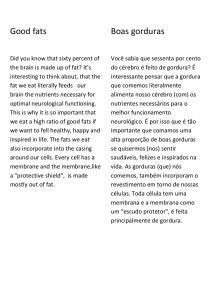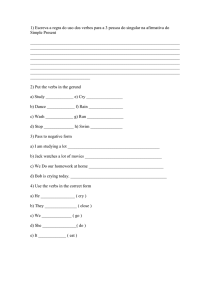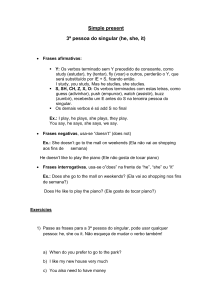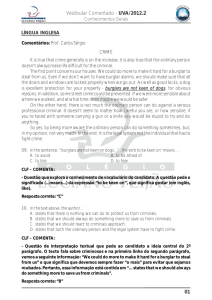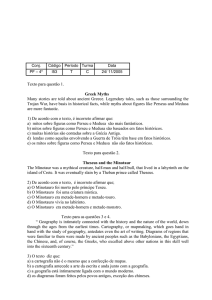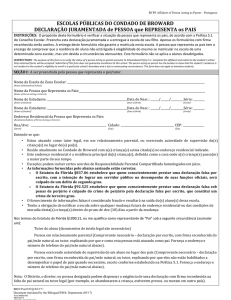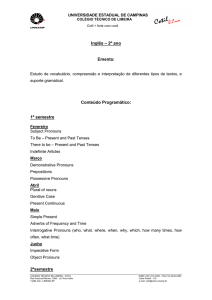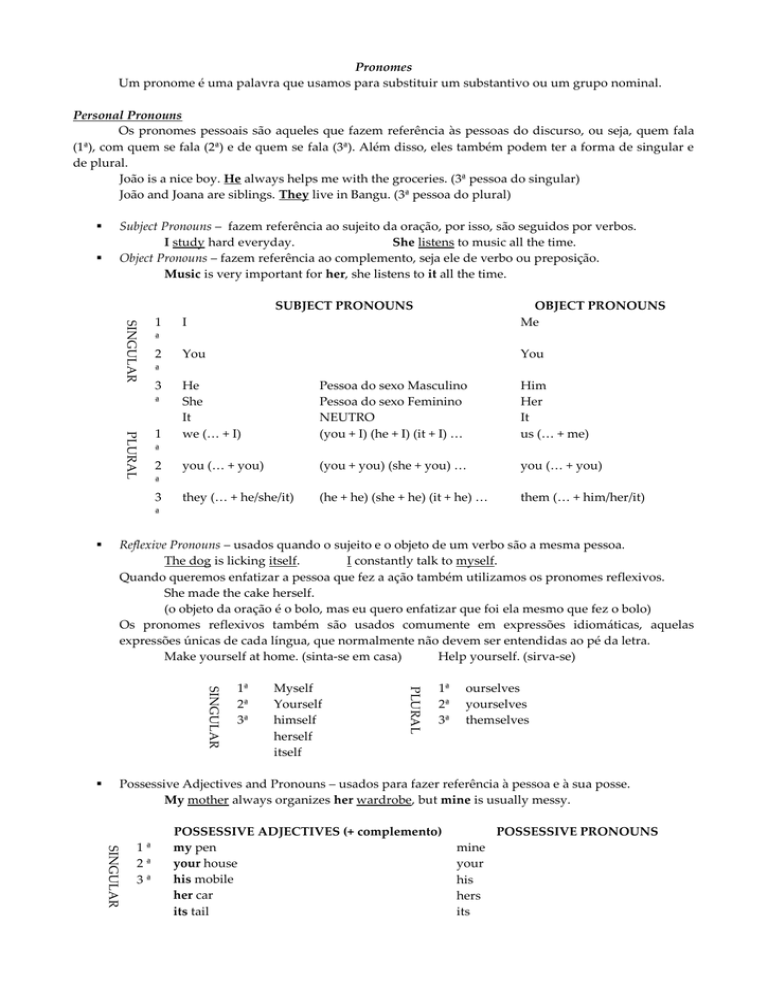
Pronomes
Um pronome é uma palavra que usamos para substituir um substantivo ou um grupo nominal.
Personal Pronouns
Os pronomes pessoais são aqueles que fazem referência às pessoas do discurso, ou seja, quem fala
(1ª), com quem se fala (2ª) e de quem se fala (3ª). Além disso, eles também podem ter a forma de singular e
de plural.
João is a nice boy. He always helps me with the groceries. (3ª pessoa do singular)
João and Joana are siblings. They live in Bangu. (3ª pessoa do plural)
Subject Pronouns – fazem referência ao sujeito da oração, por isso, são seguidos por verbos.
I study hard everyday.
She listens to music all the time.
Object Pronouns – fazem referência ao complemento, seja ele de verbo ou preposição.
Music is very important for her, she listens to it all the time.
SUBJECT PRONOUNS
SINGULAR
PLURAL
1
ª
2
ª
3
ª
1
ª
2
ª
3
ª
I
OBJECT PRONOUNS
Me
You
You
He
She
It
we (… + I)
Pessoa do sexo Masculino
Pessoa do sexo Feminino
NEUTRO
(you + I) (he + I) (it + I) …
Him
Her
It
us (… + me)
you (… + you)
(you + you) (she + you) …
you (… + you)
they (… + he/she/it)
(he + he) (she + he) (it + he) …
them (… + him/her/it)
Reflexive Pronouns – usados quando o sujeito e o objeto de um verbo são a mesma pessoa.
The dog is licking itself.
I constantly talk to myself.
Quando queremos enfatizar a pessoa que fez a ação também utilizamos os pronomes reflexivos.
She made the cake herself.
(o objeto da oração é o bolo, mas eu quero enfatizar que foi ela mesmo que fez o bolo)
Os pronomes reflexivos também são usados comumente em expressões idiomáticas, aquelas
expressões únicas de cada língua, que normalmente não devem ser entendidas ao pé da letra.
Make yourself at home. (sinta-se em casa)
Help yourself. (sirva-se)
Myself
Yourself
himself
herself
itself
PLURAL
SINGULAR
1ª
2ª
3ª
1ª
2ª
3ª
ourselves
yourselves
themselves
Possessive Adjectives and Pronouns – usados para fazer referência à pessoa e à sua posse.
My mother always organizes her wardrobe, but mine is usually messy.
SINGULAR
1ª
2ª
3ª
POSSESSIVE ADJECTIVES (+ complemento)
my pen
your house
his mobile
her car
its tail
POSSESSIVE PRONOUNS
mine
your
his
hers
its
PLURAL
1ª
our teacher
ours
2ª
your house
yours
3ª
their job
theirs
HANDS ON!
Substitua os substantivos sublinhados pelos respectivos pronomes:
1. Joana never watches TV.
2. You and I will meet Joana and John.
3. Susan and Michael need to talk to you and your mother.
4. The dog will stay with you and me.
5. Claudio loves Melanie.
Circule o pronome correto:
1. I often see (they, them) on the bus.
2. She lives near (us, we).
3. (He, Him) is a very studious person.
4. I always speak to (he, him) in English.
5. (we, us) always walk to school together.
Complete as frases com o adjetivo possessivo correto:
1. She knows __________ lesson well.
2. Mary and I do ___________ homework together.
3. I do __________ homework on the bus.
4. The children take __________ toys to the park.
5. You and Henry spend a lot of time on ___________ homework.
Susbtitua o adjetivo possessivo pelo pronome possessivo:
1. These pencils are your pencils.
2. I believe this is her pen, not my pen.
3. Their home is pretty but our home is perfect.
4. Is this his notebook or is it your notebook?
5. These pencils are our pencils.
Complete com o pronome reflexivo apropriado:
1. The little girl hurt _________________ when she fell.
2. I once cut _____________ badly with a knife.
3. Helen and I enjoyed ________________ very much at the party last night.
4. My father shaves ________________ every morning.
5. Both boys taught ____________________ to swim.
Leia o texto abaixo e assinale as alternativas como V (verdadeiras) ou F (falsas). Além disso, você
deverá corrigir a informação quando a alternativa for falsa.
Are you young, bright, and eager to have a career in Advertising and
Communications? We need new people to plan and create advertising campaigns. We
will train you. No experience is necessary, but you must have a perfect knowledge of
English.
Send your resumé, and 100 words in English, hand-written, explaining your
abilities and why we should choose YOU to “Training for Jobs”, Caixa Postal 66208.
O Estado de São Paulo
1.
2.
O anúncio procura um professional que não precisa ter experiência. ( )
A vaga é para um profissional para a área de Planejamento e Criatividade. (
)
3.
4.
5.
O candidato precisa ter somente conhecimento básico de inglês. ( )
Além do currículo, o candidato deve enviar uma carta digitada. ( )
O anúncio explicita quais habilidades são necessárias para a posição. (
)


